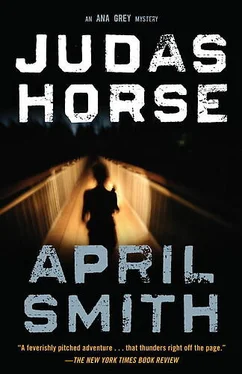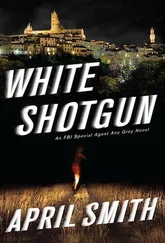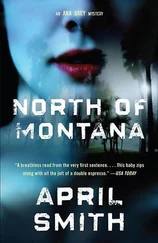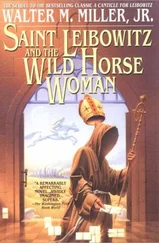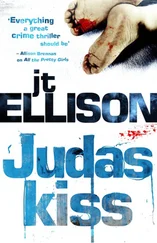“Here I am, living on campus, stoned out of my mind, getting down with the folks while trying to hold on to my Bureau identity— really holding on —believing we had right on our side and this scum had to be caught and put in jail because they were criminals, because they were blowing up the Capitol Building and the Queens Courthouse and Gulf Oil. See, darlin’? Anarchy is nothing new. But then the Bureau fucked with Megan, and I told them not to —and I couldn’t hold it together any longer. This thing split inside me. The job itself was blowing me apart.” “What did they do to her?”
“They spread disinformation. I was a Communist and a slut,” Megan says. “They got me fired from my job at Berkeley.” Stone takes her hand.
“She was a hot, sexy, rebellious professor, and I was a student radical supposedly taking her class. A little old for the part, although I was a lot skinnier — and I had this cornball alias, ‘Aquarius Bob’—but she liked me anyway. They arrested her at a demonstration on phony, cooked-up charges, I signed her out of jail, and we never looked back. Both our careers were over, so what the fuck? The Bureau went ballistic. They sent guys to my old apartment in Venice, and all they found was an empty wreck. Clothes on the floor, nothing washed, nothing put back in drawers, fast food and candy wrappers — as time went by, the layers just piled up. They let it drop, ever so subtly to everyone in L.A., that I’d flipped out and gone over to the other side, when for all they knew, I could have been living on the beach in Hawaii. They totally trashed me.” “He was a beautiful young man.” Megan is suddenly self-conscious, eyes downcast. “He was motivated by ideals, even though they were different from mine. But that’s why I fell in love with him. He was a lanky, serious guy who kind of stumbled over the rhetoric. For all his conservative outlook, there was something edgy and unsafe about Julius, more dangerous than the most radical hippies.” “Because I was playing both sides. It’s a high. Right, Ana?”
“We were young, ready to take on the world. I didn’t know he was an agent until he showed up at jail. He looked completely different. He’d cut his hair and put on a suit. He brought me these horrible clothes! Where did you get those clothes? I looked like a school-teacher, but it got us to Canada.” I smile sadly. “I knew this was a love story.”
But there is bitterness, too. “What did we have?” Megan asks. “Nothing but sex. I mean, literally, nothing. But at the time, it was the only thing that seemed to matter: Making love was the ultimate political act. As if two people in bed could change the world. Then it got cold and winter came and we were sick all the time, living as fugitives until the movement started to eat its own tail.” “You wanted out.”
“Where could we go with no résumés and no work histories that matched our ages, except the abandoned family farm that nobody wanted? We pulled out the old u-pick peach orchard and planted hazelnuts. He went back to school and learned tree farming and became a pillar of the community, and by then, well, there was no chance of children, but that’s okay, because we had our rescue animals.” “When I went home that final time,” says Stone, “and said good-bye to my parents, I wanted them to know I wasn’t taking a top secret assignment to cause them more hurt, but of course it did, because they never saw either one of their sons again, after my brother was killed. Some days I can put a good face on it. To their dying hour, they could hold my brother up as a hero. He was a hero, but I’ll always be a criminal. If Ana Grey and friends have anything to say about it.” “I have nothing to say.”
They all were criminals. In the late seventies, Acting Director L. Patrick Grey III and two other highly ranked FBI officials were indicted for violating the constitutional rights of relatives of the Weatherman fugitives.
“I’ll tell you what’s worse,” Stone goes on. “I tried to go public. I talked to Jimmy Breslin—” “Stop it now,” Megan says. “Enough.”
But Stone is on a hectic roll.
“He wanted proof. Where was the proof? I’ll tell you. In forty-seven drawers of files on deep-cover operatives that the Bureau destroyed. See, that was a violation of me. Of my history. My sacrifice. My rights as a human being. And hers. I knew everything they did to Megan Tewksbury, play by play. I went to my supervisor, another sidewinder, Peter Abbott, and I said, ‘This woman is entitled to free speech. She is not a national security threat, nor is she a whore. Leave her alone.’ I was in love with her and that’s why he wouldn’t stop. Just to test me. Mess with my head.” “That’s not the only reason,” Megan says crossly. “You forget. I was speaking out against the power companies that were destroying the West, one of which was owned by the Abbott family.” I remember the surveillance photo Peter Abbott displayed at the conference table in Los Angeles. Megan, wrapped in an American flag, was shouting nose-to-nose with his congressman father at the building site of a dam along the Columbia Gorge.
Nice sideburns, Dad.
“They were given a free pass to own the Northwest electric grid by destroying the natural rivers. People in the movement knew it. Knew it was totally corrupt. They used every obscene trick in the book to persecute us, and eventually, sickeningly, we gave up and ran.” Stone’s voice is rising. “I warned him when he was my supervisor: If he didn’t lay off you, I’d bring him down. The yachts, the mansions, the whole damn empire—” Megan is scornful. “Yachts? Now you’re talking nonsense.”
And Stone’s eyes take on a vacant look, meaning that he’s shifting gears. Even his voice is throaty when he says, “I’ve got the goods on Abbott.” I ask, “What goods?”
“Illegal contracts.”
“How?”
“Pay attention. I said I had an impeccable source on the inside.”
“Rooney Berwick? He works in the lab.”
“He’s a computer wonk, a master hacker. It’s a game to him: Beat the assholes. It took us years.” “This impeccable intel — where is it?”
“Buried. For now.”
“You always go too far,” Megan scolds. “You get stuck on these obsessions, and what good does it do?” Stone is conspiratorial. “Megan Tewksbury wasn’t her real name. It was Laurel Williams.” Megan begins to cry. “Oh my God. I haven’t heard that said out loud in thirty years.” There is a sick lump in my throat. Dick Stone takes off his glasses and rubs his small damp eyes. After a while he says, “It’s time.” Megan looks over from the sink, where she has splashed her flaming cheeks.
“Are you still with me?” he asks her with a heart-wrenching look of disembodied loneliness.
Megan reaches for a dish towel and dries her hands. She rests in that gesture of finality, fingers kneading the cloth.
The white cat stalks along the windowsill, neatly avoiding the plants. Stone sits with his eyes out of focus and shoulders slumped, a mountain of weightiness. I look back and forth between them. The limpid light from the window washes over us with incongruous peace.
When I was in college, I once stayed up all night, driving the Pacific Coast Highway with a wealthy girlfriend who owned an MG convertible. We forced ourselves to stay awake because neither of us had ever actually seen the dawn. We wanted to mark the very instant the darkness crossed that line in the sky into day.
I learned that night there is no marker, no precise delineation for change, but as the sun rose over the red tile roofs of Santa Barbara, I witnessed for the first time how the world slowly blushes open, the way it has just now, in this long moment of disengagement — without words and without a look — as Megan and Stone have begun their good-byes to a long shared life on the run.
Читать дальше
